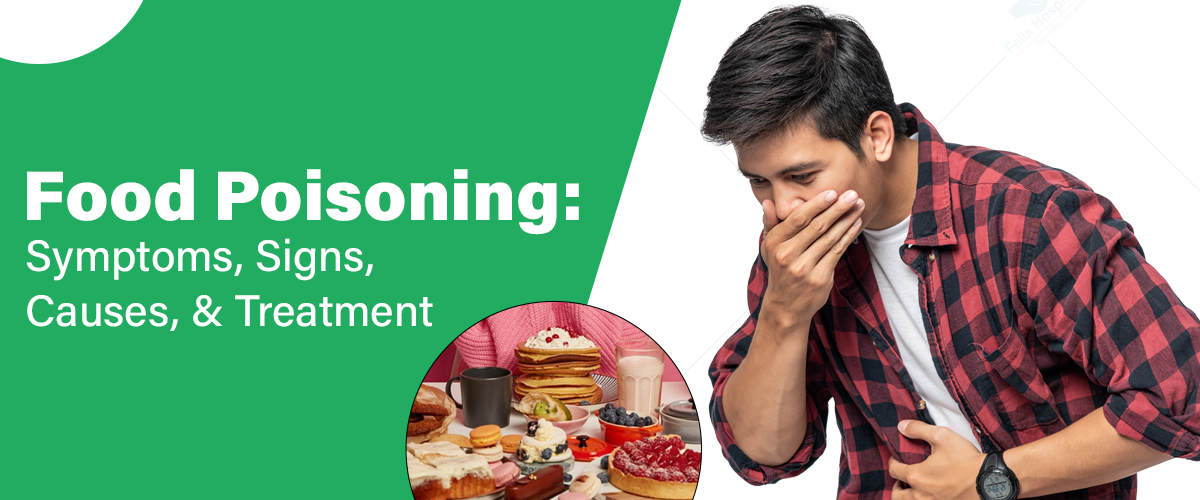AZG News Hub
Your go-to source for the latest news and informative articles.
Surviving Dinner: Tales from the Food Poisoning Trenches
Dive into gut-wrenching tales of food poisoning and learn how to survive your next meal. Don't let dinner be your downfall!
10 Warning Signs of Food Poisoning You Should Never Ignore
Food poisoning can strike unexpectedly, and recognizing the warning signs is crucial for your health. Symptoms can vary greatly, but some common indicators include nausea, vomiting, and diarrhea. These symptoms often appear within hours of consuming contaminated food or drink. However, in some cases, they may take days to manifest. If you experience abdominal pain or cramps along with these symptoms, it could signal a more severe reaction in your body. Always pay attention to your body's signals and take them seriously.
Other warning signs of food poisoning that should never be ignored include fever, muscle aches, and dehydration. A fever above 101°F (38°C) is a clear indicator that your body is fighting an infection. Muscle aches and fatigue can further exacerbate your situation, making it harder for your body to recover. Additionally, if you notice signs of dehydration such as a dry mouth, decreased urine output, or dizziness, seek medical attention immediately. It's important to recognize these signs early to ensure prompt treatment and avoid serious health complications.

The Most Common Food Poisoning Culprits: What to Watch Out For
Food poisoning is a serious health concern that affects millions of people each year. Understanding the most common food poisoning culprits can help you take preventative measures in your kitchen. Some of the primary offenders include undercooked poultry, raw eggs, and unpasteurized dairy products. These items often harbor dangerous bacteria such as Salmonella and Campylobacter, which can lead to severe gastrointestinal issues. Fruits and vegetables can also be a source of contamination, particularly when they are not washed properly or are exposed to contaminated water.
To minimize your risk of food poisoning, it's essential to follow safe food handling practices. Here are some tips to consider:
- Always cook meat to the appropriate temperature.
- Avoid cross-contamination by using separate cutting boards for raw meat and produce.
- Wash fruits and vegetables thoroughly before consumption.
- Store perishable items in the refrigerator promptly.
By being aware of the most common food poisoning culprits and practicing food safety, you can protect yourself and your loved ones from foodborne illnesses.
How to Safely Prepare Leftovers: Tips for Preventing Food Poisoning
Leftovers can be a convenient way to enjoy previously cooked meals, but it's essential to handle them safely to avoid the risk of food poisoning. First, ensure that you store leftovers in shallow containers and refrigerate them within two hours of cooking. To keep track of freshness, label your leftovers with the date they were stored. It's advisable to consume refrigerated leftovers within three to four days. If you don't think you'll eat them in that time frame, consider freezing them for longer storage. Remember to always chill leftover food before placing it in the fridge to maintain a safe temperature.
When you reheating leftover food, it's crucial to do so thoroughly. Use a food thermometer to ensure that the internal temperature reaches at least 165°F (74°C). Stirring the food while it heats can help distribute the heat evenly, ensuring that all parts are adequately warmed. Additionally, be cautious about reheating foods multiple times, as this increases the risk of bacterial growth. Always discard any leftovers that have been left at room temperature for more than two hours to keep you and your loved ones safe from foodborne illnesses.